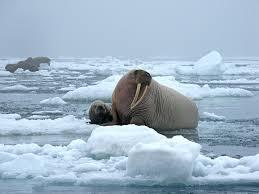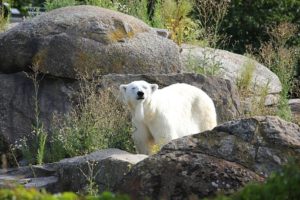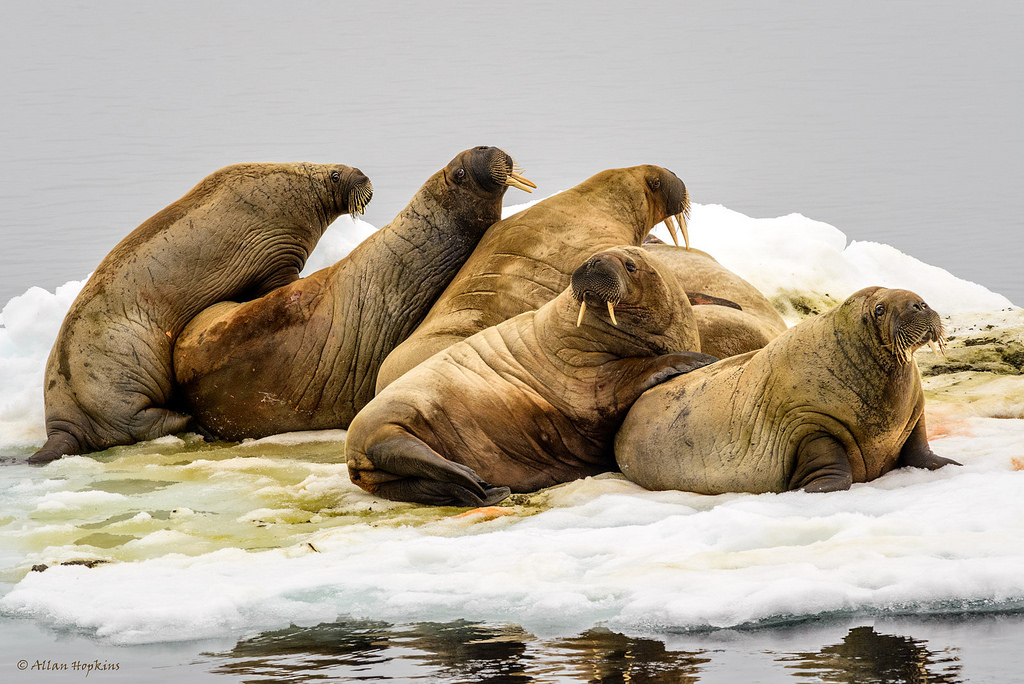11 April 2019
Helping the Planet
But we need to try harder.
By Lynda Goetz
 Last week The Telegraph April Fool’s Day article by ‘Flora Poil’ addressed the current difficulties for the public of distinguishing between reality and farce. The very next day, Jacob Rees-Mogg wrote in to their letters page to advise that, whilst there may not have been a Cromwellian statute dating from 1653 stating that ‘the issuing of false reports is strictly prohibited’, there was indeed a proclamation 35 years later in 1688 against ‘spreading false news’. So, not just a contemporary problem of the social media age, then?
Last week The Telegraph April Fool’s Day article by ‘Flora Poil’ addressed the current difficulties for the public of distinguishing between reality and farce. The very next day, Jacob Rees-Mogg wrote in to their letters page to advise that, whilst there may not have been a Cromwellian statute dating from 1653 stating that ‘the issuing of false reports is strictly prohibited’, there was indeed a proclamation 35 years later in 1688 against ‘spreading false news’. So, not just a contemporary problem of the social media age, then?
False news became an issue yet again this week when Sophie Lanfear, filmmaker and director of the episode of Our Planet which tragically and unforgettably recorded footage of walruses falling off cliffs on a small island off Russia’s Arctic coastline, defended the film and its commentary against accusations of ‘tragedy porn’ by Canadian zoologist, Susan Crockford, from the University of Victoria in British Columbia. Ms Crockford suggested that the clip was ‘contrived nonsense’ and that the walruses falling off the cliffs were more than likely escaping from groups of hunting polar bears rather than being crowded on there because of a lack of sea ice – the explanation provided by the team who did the filming and given in David Attenborough’s voice-over commentary.
 Sophie Lanfear told how heart-breaking it was watching the walruses falling, injuring themselves or dying and how she felt ‘we need to get this message out there’; the message being that climate change is causing the lack of sea ice resulting in the animals needing other ‘haul-out’ locations. Clearly, having been there she was furious at the suggestion that she and her team were not properly accounting for what they had seen on location. As Lanfear said, “We have to take ownership of this problem and wake up to the huge challenges”. One of the aims of this series is clearly to wake others up to the pressing issues we are now facing.
Sophie Lanfear told how heart-breaking it was watching the walruses falling, injuring themselves or dying and how she felt ‘we need to get this message out there’; the message being that climate change is causing the lack of sea ice resulting in the animals needing other ‘haul-out’ locations. Clearly, having been there she was furious at the suggestion that she and her team were not properly accounting for what they had seen on location. As Lanfear said, “We have to take ownership of this problem and wake up to the huge challenges”. One of the aims of this series is clearly to wake others up to the pressing issues we are now facing.
The series was made by Alastair Fothergill (who also made Planet Earth and other series in collaboration with David Attenborough) in conjunction with World Wildlife Fund (WWF) and the producers pride themselves on its scientific credentials and credibility. Dr Mark Wright, WWF Director of Science, pointed out that what happened in that now much-talked-about sequence ‘does come down to us’ and it is the urgency of the situation which has prompted Attenborough to speak out at this time whereas previously he felt reluctant, considering scientists better equipped to do so.
Certainly the final episodes in the last Attenborough BBC series, Blue Planet II, prompted a massive outcry about the problem of plastics in our oceans. What was somehow so astonishing to those of us who have been aware of this problem for a very long time now is how many were unaware. However, even those of us who were alert to the problem had perhaps not quite realised the scale of it and certainly most had not done nearly enough, even on an individual basis, to turn things around or to raise awareness in others. Personal convenience has usually superseded the future, or even present, needs of the planet.
 Now, albeit belatedly, awareness is much more general. Schoolchildren (who may or may not find a day off school attractive) are going ‘on strike’ in an attempt to force action on climate change. Books and articles are being written (although believe it or not there have been a number out there for years) on how we can each change our personal habits to reduce the amount of plastic in our lives*, the amount of food we waste or the air pollution in our homes and our environment. Although there is always the argument that enough small individual changes can make a big difference, we have, it would appear, gone beyond the point where this is going to be sufficient. The problem is not simply a first-world problem and we need developing countries on board with the arguments as well. Many are now moving in this direction but they of course are playing ‘catch-up’ with the West in economic terms and do not yet see this as their problem too.
Now, albeit belatedly, awareness is much more general. Schoolchildren (who may or may not find a day off school attractive) are going ‘on strike’ in an attempt to force action on climate change. Books and articles are being written (although believe it or not there have been a number out there for years) on how we can each change our personal habits to reduce the amount of plastic in our lives*, the amount of food we waste or the air pollution in our homes and our environment. Although there is always the argument that enough small individual changes can make a big difference, we have, it would appear, gone beyond the point where this is going to be sufficient. The problem is not simply a first-world problem and we need developing countries on board with the arguments as well. Many are now moving in this direction but they of course are playing ‘catch-up’ with the West in economic terms and do not yet see this as their problem too.
In this country, as well as in other developed countries, particularly America, we do need to see this as an urgent issue to be addressed and for government, industry and retail to cooperate in agreeing the necessary regulations to move things to the next level. On the whole the UK has been ahead of the curve and ‘a central driver of higher climate ambition within the EU (and beyond to international negotiations in the UN) and a greener Common Agricultural Policy (CAP)’, according to the comprehensive report commissioned by Friends of the Earth and published last March. However there has been deep suspicion over our plans post Brexit which was what led to the report in the first place.
 On the waste front, there is a lot individuals can do, but it is also essential that industry and retailers step up too. It is no good for retailers to protest that their customers ‘expect’ their fruit to be packaged in plastic trays enveloped in single-use plastic. They have come to expect this only because this is how it has been delivered for a number of years. It is not necessary. Even where we are importing exotic fruit or vegetables they are usually not put into plastic until they reach this country. Let’s go back to the market stall method of presentation (which incidentally they do a great deal more in European supermarkets). Customers (or even members of retail staff – extra jobs?) could put fruit and vegetables from display crates of re-usable wood into paper bags (why have those horrible hard-to-open plastic bags not disappeared long since?) and pack them carefully into our old-fashioned shopping baskets to transport them home.** What about replacing plastic bottles with deposit-paid returnable and reusable glass bottles, so well-remembered by those over 60? Could we buy more locally and cut down on polluting transport?
On the waste front, there is a lot individuals can do, but it is also essential that industry and retailers step up too. It is no good for retailers to protest that their customers ‘expect’ their fruit to be packaged in plastic trays enveloped in single-use plastic. They have come to expect this only because this is how it has been delivered for a number of years. It is not necessary. Even where we are importing exotic fruit or vegetables they are usually not put into plastic until they reach this country. Let’s go back to the market stall method of presentation (which incidentally they do a great deal more in European supermarkets). Customers (or even members of retail staff – extra jobs?) could put fruit and vegetables from display crates of re-usable wood into paper bags (why have those horrible hard-to-open plastic bags not disappeared long since?) and pack them carefully into our old-fashioned shopping baskets to transport them home.** What about replacing plastic bottles with deposit-paid returnable and reusable glass bottles, so well-remembered by those over 60? Could we buy more locally and cut down on polluting transport?
Perhaps when some Government or another has finally delivered a form of Brexit (hopefully one that isn’t akin to being in the EU but with no voting rights) ministers might find time to address all the other pressing issues on the agenda – of which the long term viability of our planet is most certainly one. In the meantime let’s all try to make our own small differences; they do after all add up (although rather like Brexit votes, we do need Parliament to act as well).
*Although Martin Dorey, author of ‘No More Plastic’ was dismayed to find in December 2018 that the American distributor of his book was shrink-wrapping it – in plastic!


